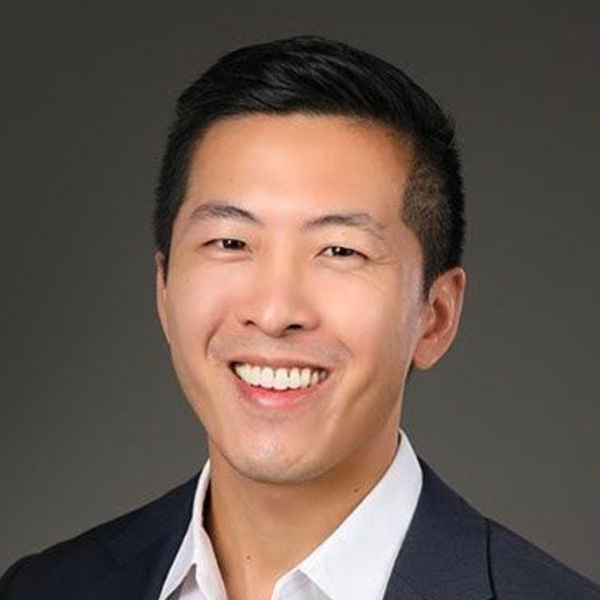Master of Healthcare Administration
The Minnesota Model
Watch the MHA Video
Theory-Driven, Practice-Enabled
A theory-driven, practice-enabled model of learning is reflected in the classroom and in the MHA leadership team, consisting of Dr. Katie White, Program Director, Justine Mishek, Associate Director, Ryan Armbruster, and Stephanie Hagel. Together the team brings together the strengths of academia and practice, while extending the capacity of the program to innovate in the classroom and in the field.
Research active faculty generate and share new findings in the classroom, while practitioner faculty bring extensive industry experience. Alumni, students, staff and program partners collaborate to strengthen healthcare delivery and the health of communities.
Mission Statement:
The University of Minnesota Master of Healthcare Administration program educates and empowers healthcare delivery and financing leaders at all career stages by providing a student-centered, theory-based, and practice-enabled graduate level educational experience and by generating actionable research knowledge.
Vision Statement:
The University of Minnesota Master of Healthcare Administration program will be a magnet for aspiring healthcare management leaders. Together, faculty, staff, students, and alumni will be known for the active learning community that works towards the goal of enhancing healthcare delivery, thereby improving health and strengthening communities.
Values:
Excellence | Continuous Learning | Innovation | Diversity, Equity & Inclusion | Professionalism & Integrity | Service Orientation | Connection

Influencing National Policy
Jean Abraham, PhD
Professor and Division Head, Division of Health Policy and Management
As a health economist, Jean’s primary research areas focus on private health insurance, including consumer behavior, plan quality, benefit design innovation, and competition. She served as a senior economic adviser for health issues with the Council of Economic Advisers under Presidents George W. Bush and Barack Obama.
Driving Innovation
Ryan Armbruster, MHA ‘98
Senior Fellow & Director of MHA Executive Program
Ryan Armbuster designs and teaches healthcare innovation and service design courses and developed the 2022 CAHME award winning course on climate change and healthcare organizations.
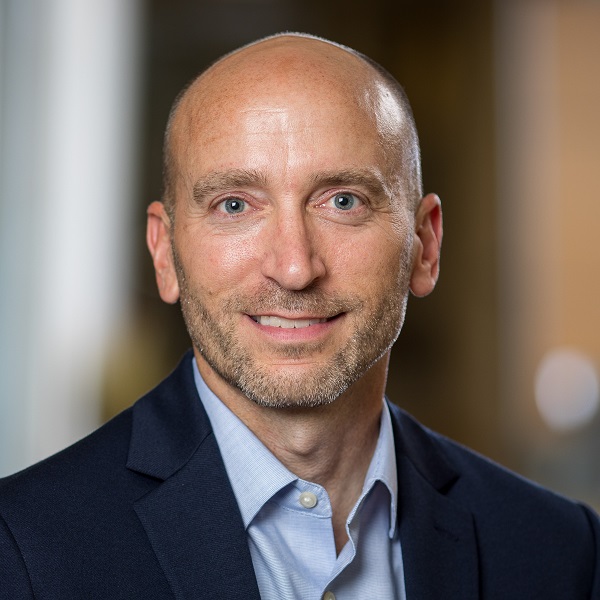
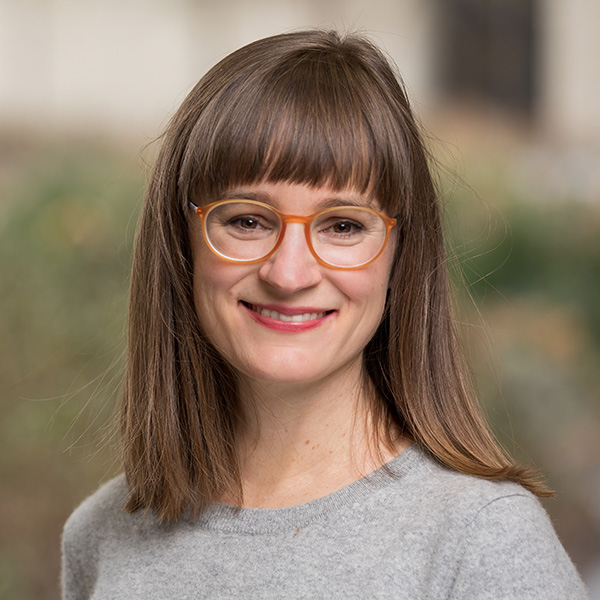
Dedicated to Equity
Janette Dill, PhD
Associate Professor
Janette Dill’s research examines how structural racism and sexism shape the employment trajectories of workers in the U.S. healthcare system, and measures the employment behavior and intentions of direct care workers during and after the COVID-19 pandemic.
Improving Health Services
Katie White, EdD, MBA
Associate Professor
MHA Program Director, Division of Health Policy & Management
Katie White is a research methodologist who uses implementation science to examine ways to improve the quality and effectiveness of health services. She teaches courses in health services management, qualitative research, and change leadership.
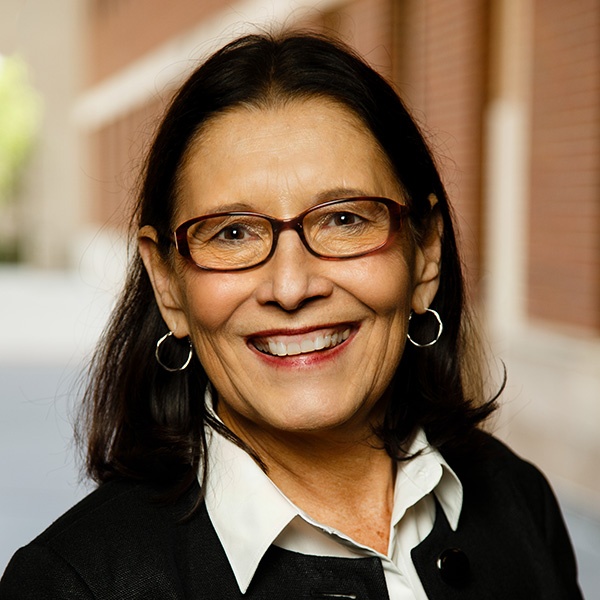
MHA Residential Track
58
Students (across 2 cohorts)
59%
Female
34%
Students of color
65%
Out of state
3.65
Average undergrad GPA
100%
Job and fellowship placement


Angela Botiba, MHA ‘24
“As future administrator, I believe that I can collaborate with other health professionals to create better advocacy and educational programs that help patients understand that they are contributors in producing better health outcomes for themselves.”
Victoria Anderson, MHA ‘23
“I believe that the patient is the main priority and there is always room for improvement within the healthcare experience.”

Innovative Curriculum
In 2022, the MHA program developed a CAHME award-winning climate change and healthcare delivery course which offers students the opportunity to learn about the impact of climate change on health and healthcare delivery organizations, as well as the role that healthcare leaders play in promoting environmental sustainability.
Case Competitions
Students apply knowledge and skills developed in the classroom to a specific problem or issue at national case competitions. These experiences promote teamwork, research and presentation skills, and allow students to build a national network with their peers. In 2022, Minnesota placed first in the OSU, UAB and Prism Consulting Group case competitions.
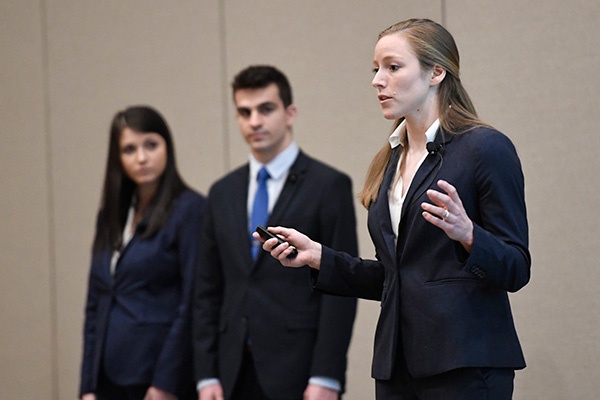
MHA Executive Track
Students in the Executive Master of Healthcare Administration Program come with rich and diverse professional experience, providing broad perspectives and deep peer-to-peer learning.
41
Students
61%
Female
65%
MN Residents
22%
Students of Color
35%
out of state, representing 8 states
9
Average Years of Experience


Driving Equity in Healthcare Delivery
Vivian Anugwom, MHA ‘22
Vivian Anugwom, MHA ‘22, is the System Director for Health Equity at Allina Health in Minneapolis where she develops and oversees execution of their health equity system strategy. She develops the infrastructure needed to support leaders, employees, and front-line staff in delivering inclusive care.
Building Partnerships for Equitable Care
Nate Scott, MHA ‘21
Nate Scott, MD, MHA ’21, is an emergency physician at Hennepin Healthcare, an academic level 1 trauma center in Minneapolis. He also serves as the chief medical officer for Hennepin Health, a health plan and accountable care organization serving Medicaid members in Hennepin County. He is an Associate Professor at the University of Minnesota Medical School.
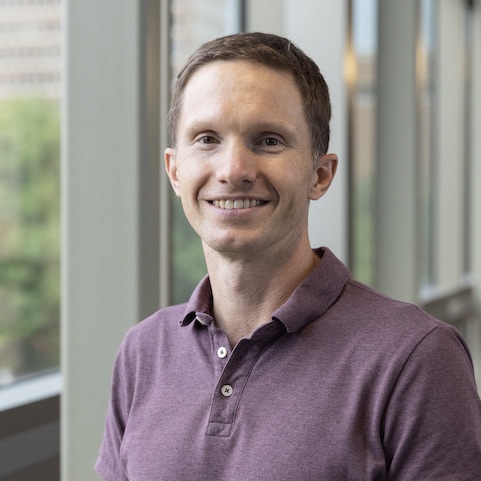
Alumni – Influencing the Future of Healthcare
Minnesota alumni are uniquely trained and positioned to innovate and problem solve in organizations facing change. A strong alumni network allows graduates to leverage the talent and expertise of their cohort throughout their career.
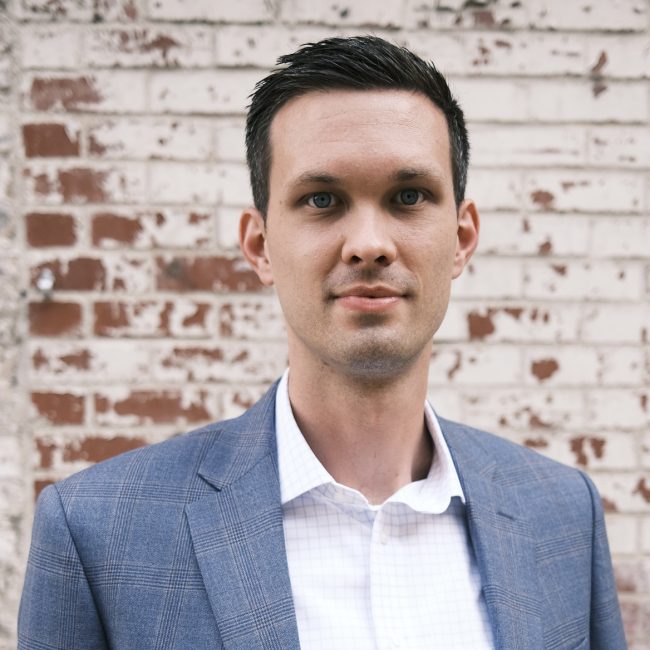
Confronting Healthcare Disparities
Jon DeYoung, MHA ‘19
Assistant Director of Health Equity Access and Engagement for Cone Health
“We really have two pandemics in America: COVID and a racial pandemic. We’re exploring opportunities to increase access to care, especially among our lower-income citizens in under-served areas.”
Strengthening Health Equity
Pradipta Komanduri, MHA ‘05
Chief Operating Officer at University of Colorado Hospital, UC Health
“One of the strengths of our new system is identifying the social determinants of health. There is so much new data available to us now. We want to do our best to use the data in health screening so that we understand our patients and families better and enrich the care that we provide.”

Leading Workforce Strategy
Rachel McKinney, MHA ‘04
CEO of Sutter Medical Center, Sacramento
“One of the biggest challenges is workforce shortages and how we look differently at the workforce to deliver quality care going into the future.”
Challenging Inequity
Victor Wong, MHA ‘14
Senior Manager, Healthcare & Life Sciences at West Monroe
”Inequity is ingrained in our processes, our medical education, our clinical trials; there is so much that we need to untangle. We need a top down commitment to understanding and changing the structure of how healthcare is designed and delivered.”
